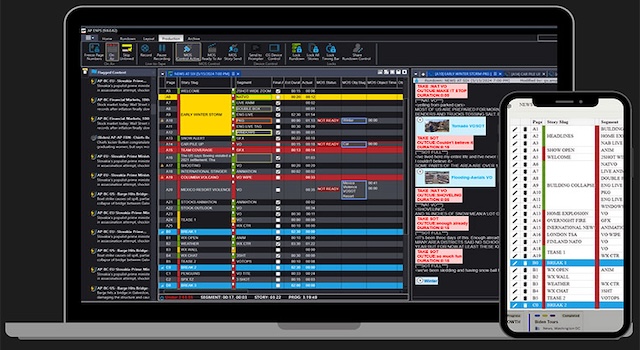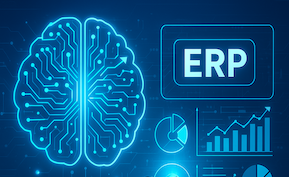Accounting
Artificial Intelligence
Accounting Automation with Generative AI: From Invoice Capture to Financial Forecasting

Generative AI in accounting is ushering in a new era of automation. From automatically capturing invoices to forecasting revenue and cash flow, AI-powered accounting software is helping finance teams eliminate manual work, detect anomalies early, and make faster, data-driven decisions.
How AI transforms accounting automation
AI has been part of accounting for years—but generative AI takes automation further by interpreting context, generating insights, and even writing financial narratives. Instead of just processing transactions, modern accounting systems can now understand them.
- Natural language understanding: AI reads invoices, contracts, and receipts with human-like accuracy.
- Predictive analytics: Forecast cash flow and expenses based on historical patterns.
- Generative reporting: Automatically create financial summaries, budget notes, and variance analyses in plain English.
- Anomaly detection: Identify irregularities in transactions, vendor payments, or journal entries instantly.
AI-powered accounting workflows
- Invoice capture: AI extracts fields like vendor name, date, total, and tax directly from PDF or email attachments.
- Bank reconciliation: Algorithms automatically match payments and receipts to corresponding ledger entries.
- Expense classification: Machine learning models tag and categorize transactions with near-perfect accuracy.
- Revenue recognition: Automate ASC 606 and IFRS 15 compliance using AI-triggered journal rules.
- Forecasting & scenario planning: Generative AI models simulate future cash positions and budget outcomes.
Key benefits of AI accounting automation
- Time savings: Reduce manual data entry by 70–90%.
- Accuracy: Minimize human error in bookkeeping and reporting.
- Cost efficiency: Automate repetitive workflows without increasing headcount.
- Audit readiness: Maintain detailed, AI-generated audit trails for every transaction.
- Strategic insights: Finance teams shift from data entry to data analysis.
Top tools using generative AI for accounting
- Intuit QuickBooks AI: Smart expense classification, invoice capture, and forecast modeling.
- Xero AI Assistant: Predictive suggestions for reconciliation and cash management.
- Zoho Books: AI-based automation for billing, project accounting, and anomaly detection.
- Sage Intacct Intelligent GL: Uses machine learning to automate journal creation and validation.
- Ramp & Airbase: Combine spend management with AI-powered accounting workflows.
Implementation roadmap
- Assess automation potential: Identify high-volume, repetitive processes (e.g., AP, AR, reconciliation).
- Select AI-ready software: Choose platforms offering APIs and machine learning capabilities.
- Integrate data sources: Connect banking, invoicing, and ERP systems for seamless data flow.
- Train AI models: Allow the system to learn from your historical data for improved accuracy.
- Monitor & refine: Continuously validate AI outputs and adjust rules as the business evolves.
KPIs to measure success
- Manual entry reduction rate (% decrease in human data processing)
- Close cycle duration (days to complete monthly close)
- Forecast accuracy (% variance between actual and predicted results)
- Anomaly detection precision (% of false positives vs true alerts)
Challenges & considerations
- Data privacy: Ensure sensitive financial data stays compliant with SOC 2, GDPR, and CCPA.
- Model transparency: Use explainable AI frameworks for audit and regulatory compliance.
- Change management: Upskill accountants to work alongside automation tools.
SEO-friendly FAQs
What is AI in accounting automation? It’s the use of machine learning and generative AI to process invoices, reconcile accounts, detect anomalies, and produce financial reports automatically.
Can AI replace accountants? No—AI handles repetitive tasks, while accountants focus on strategic analysis and advisory work.
Is generative AI safe for finance? Yes—when governed properly with strong data controls and secure integrations.
What’s the ROI of AI accounting automation? Most companies report a 30–50% reduction in finance operations costs within a year of deployment.
Bottom line
AI and automation are redefining accounting’s role in business. By combining generative intelligence with financial automation, companies can move beyond bookkeeping toward continuous insight—making finance faster, smarter, and more strategic than ever before.






